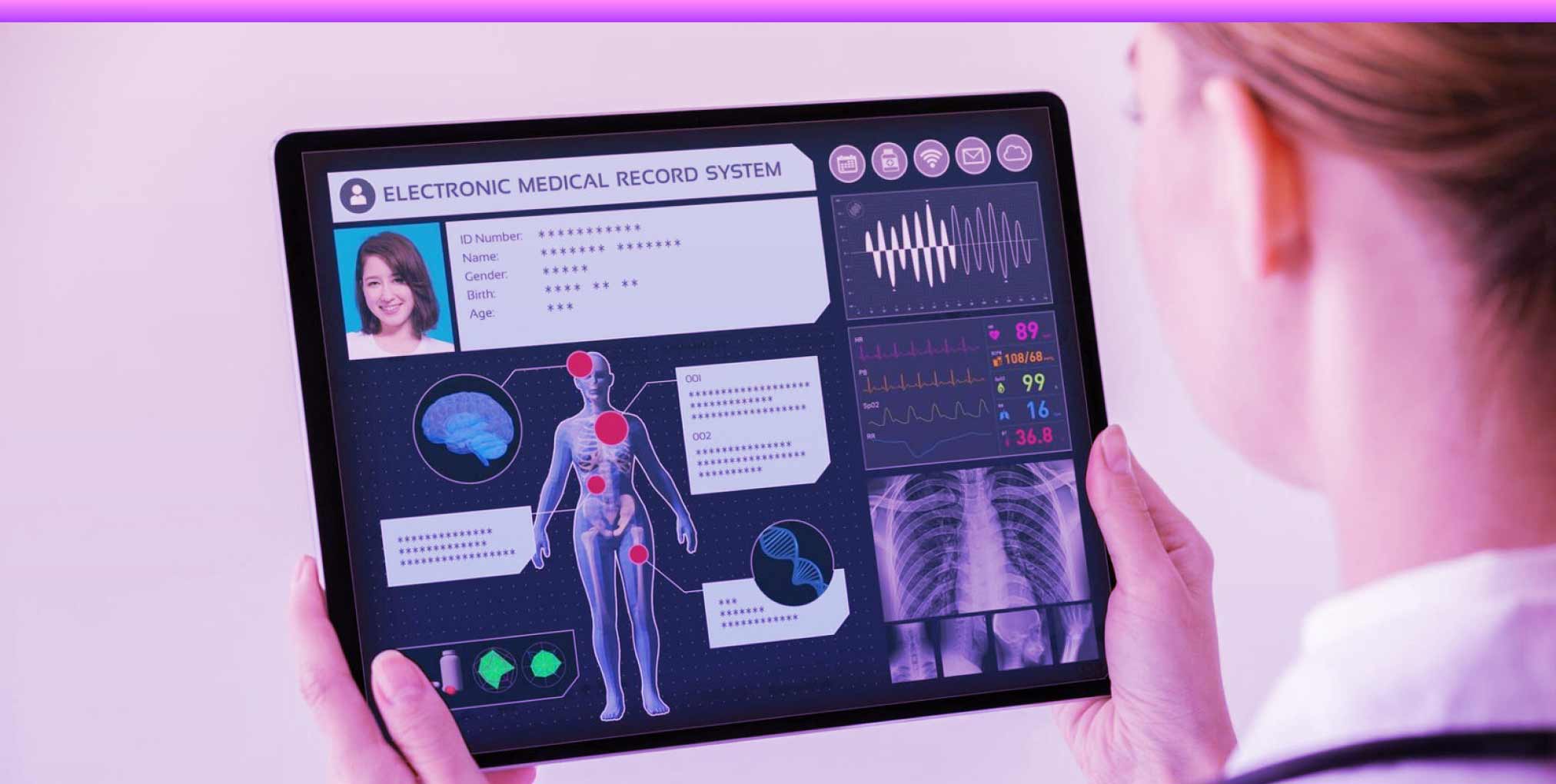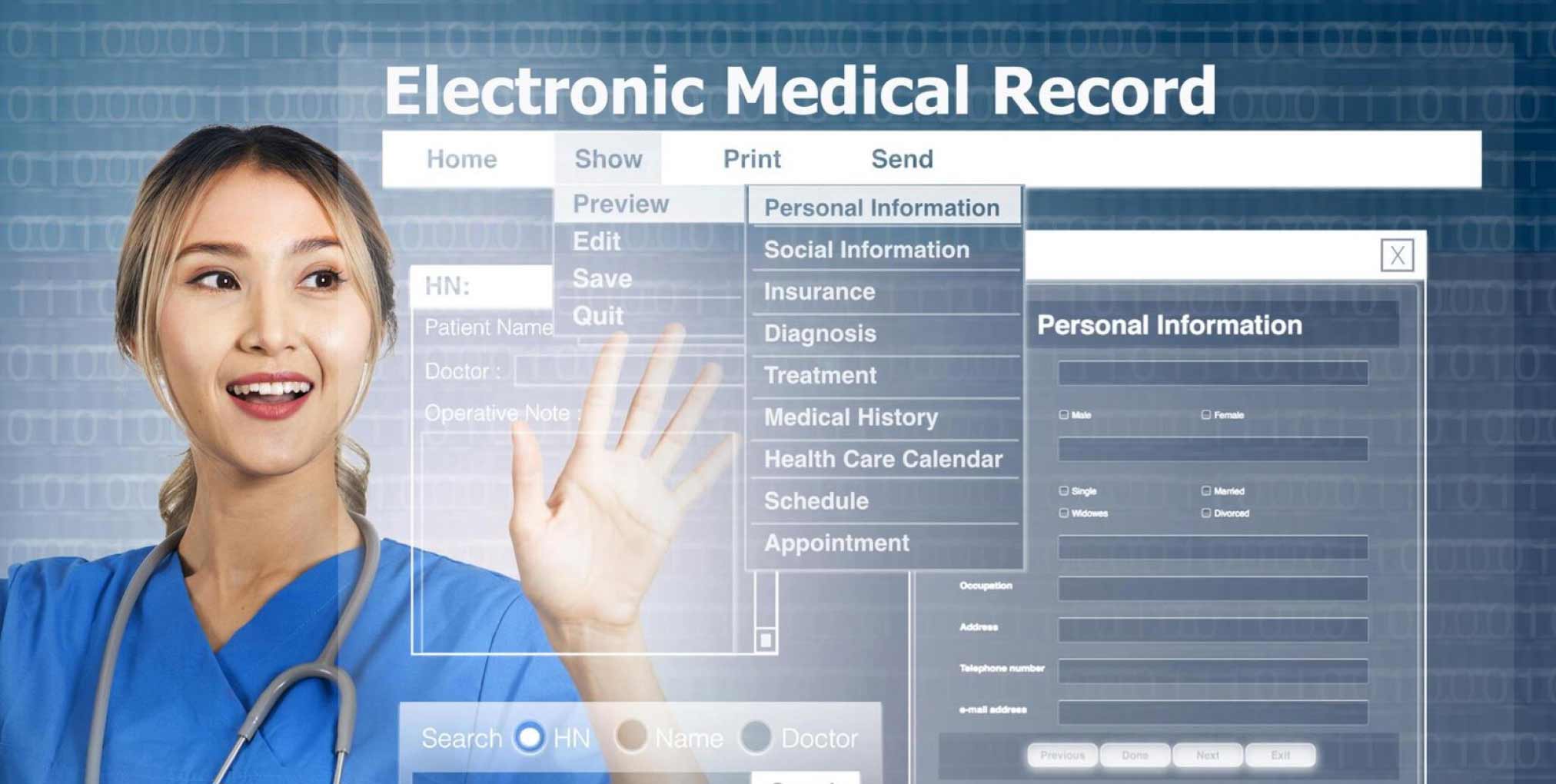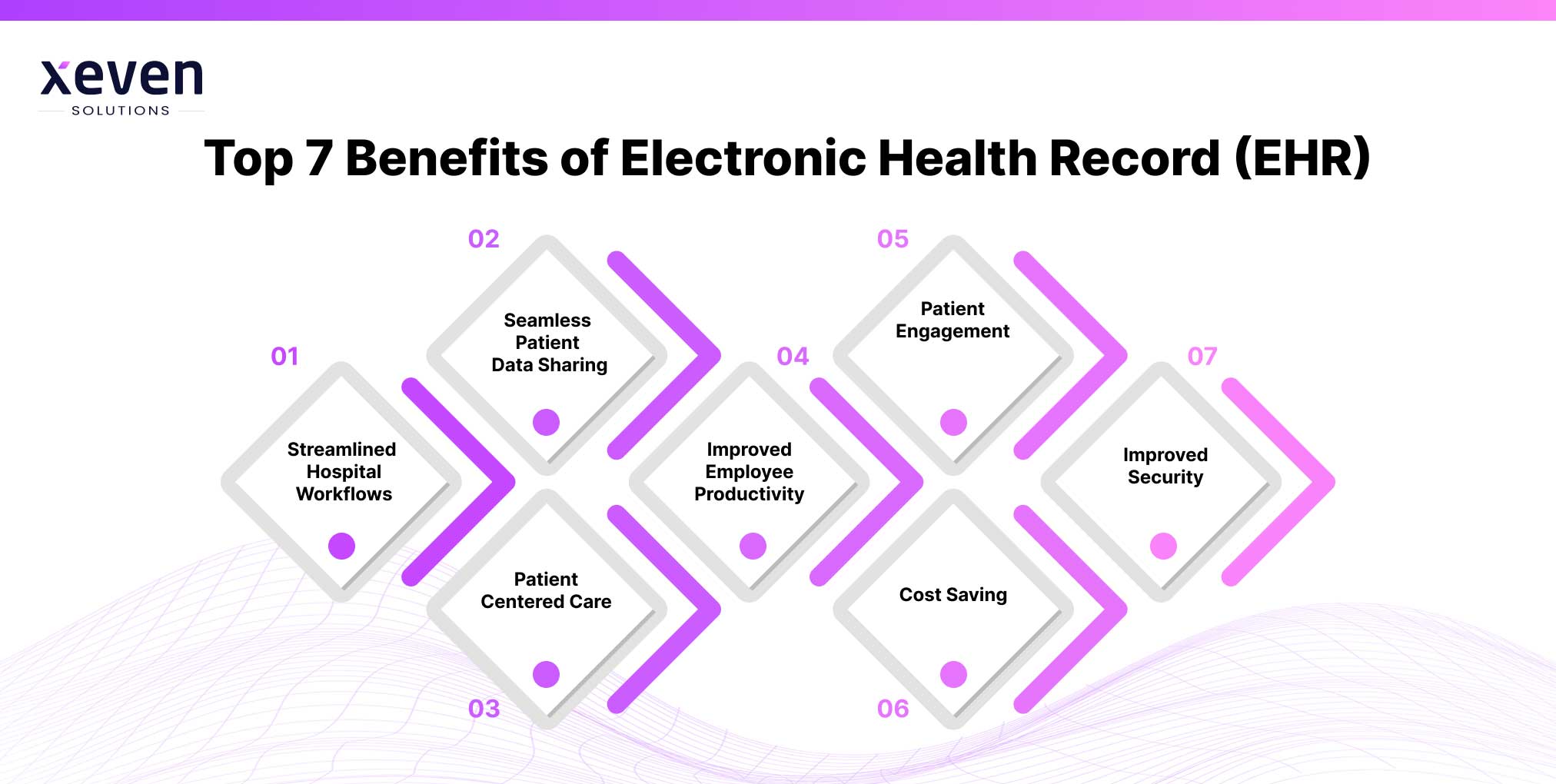

April 3, 2024
Industries are increasingly adopting digital tools and solutions to automate tedious and time-consuming tasks. This is because automation improves employee productivity and allows them to focus on pivotal aspects.
Automation is not just an option; it is necessary when it comes to the healthcare industry. Therefore, this sector has always been at the forefront of embracing smart AI solutions. One such example is EHR integration in the healthcare sector. According to HealthIT.gov, approximately 96% of non-federal acute care hospitals have integrated EHR.
It allows sharing of patient data among various healthcare systems securely and efficiently. Doctors and physicians can have timely access to patient data that empowers them to make better decisions and improve overall patient outcomes.
This article will provide you with in-depth information about EHR integration solutions, their benefits, challenges, and much more.

An Electronic Health Record (EHR) is a digital representation of a patient’s medical history maintained over time. It can be the patient’s past diseases, medication, demographics, allergy data, vital signs, health reports, etc.
EHR integration means connecting multiple electronic health systems so that they can exchange information with each other seamlessly to streamline healthcare workflows. Doctors can easily access this information without any challenges.
We all know that every second matters in the health sector, so having an EHR integration system is crucial as it saves time and empowers healthcare professionals to make timely decisions.

Building an AI healthcare app has transformed the health industry, and the same can be said for healthcare software integration. EHR integration solutions offer a multitude of benefits to doctors, patients, and healthcare enterprises. Here are some of the most crucial reasons for businesses to integrate EHR:
One of the most crucial reasons for adopting EHR systems is their ability to automate time-consuming and redundant processes. Question yourself: Is it possible to do all the laborious tasks of crafting and managing documents and providing better patient care at the same time? Your answer will surely be No.
Gone are the days when doctors rely on document-based patient data to make decisions. Now, managing and accessing accurate patient records is convenient with the EHR systems. EHR healthcare software integration improves productivity, reduces potential errors, and enables efficient delivery of patient care.
Real-time access to patient data is crucial to make informed decisions at the right time. Data sharing among multiple systems within the organization as well as with other enterprises is possible within a fraction of the time. Yes, you heard it right.
EHR interoperability makes it possible for systems across multiple organizations to share patient data and promote better health outcomes for individuals. It is one of the major reasons behind businesses investing in integrated electronic health records.
When EHR systems automate all the exhausting paperwork and redundant tasks, then the medical staff is free to prioritize patient care. When there is more focus on patient care, patient outcomes will be notably improved. You can also integrate decision support tools within EHR systems to get valuable insights.
Moreover, when a doctor is able to access all updated patient data and history, he can provide a quick treatment plan to patients. All these fantastic benefits to patients are feasible with just EHR integration. Thus, people prioritize convenience, and EHRs are what businesses need.
According to ScienceDirect, nearly 44% of an emergency department physician’s time is spent on data entry and only 28% on direct patient care. EHR solutions automate administrative workflows and reduce the burden of tedious tasks for healthcare professionals.
This reduction in administrative burden empowers doctors to relax and stay more focused on providing exceptional patient care. Employees will feel less burnout and will stay for a longer time with the healthcare organization.
Engaging patients can significantly enhance their trust in the organization and improve overall patient experience. EHR integration enables patients to access their data from anywhere at any time. They feel more actively participated in the process, which encourages them to comply with treatment plans.
Patient portals are another valuable tool that can be embedded in EHRs to enhance patient engagement. These portals allow patients to have access to valuable educational resources relevant to their health. This way, patients can self-improve their care and know the exact health condition.
Cost saving is one of the most pivotal benefits of EHR integration. But how does it save costs when digitalization is costly? Yes, it is a one-time cost that will save you money for the rest of your life. It saves costs by reducing the need for redundant tests and procedures.
It significantly benefits clinicians by increasing their profits, as they don’t have to waste crucial time gathering patient data, thus treating more patients. What’s more, it helps healthcare providers save a hefty amount of money due to increased diagnostic accuracy, as there will be negligible chances of facing lawsuits.
The healthcare sector has an abundance of sensitive patient information, and a breach of this information can lead to legal action against your organization. Protecting hospital data against cyber attacks and unauthorized access is of paramount importance.
EHR systems play a pivotal role in protecting patient information. By maintaining HIPAA compliance and implementing robust security measures, they provide peace of mind for healthcare practices.
We all know that there are numerous challenges to implementing AI in healthcare, and the same holds true for AI-driven EHR solutions. It would be unjust if we just provide you with information regarding the benefits of EHR solutions and totally overlook the challenges of implementing EHR.
Businesses must be ready to face and address the following EHR healthcare software integration challenges:
Compatibility with your existing systems can be a challenging task that your business must consider when opting for integrated electronic health records. If the EHR system isn’t compatible, your business will not reap its benefits. This non-compatibility will hinder employee productivity, thus significantly impacting patient outcomes.
You must choose a reliable and trusted custom software development company and seek advice regarding the compatibility of your EHR system. They will craft a tailored solution that will mitigate any potential non-compatibility concerns and improve patient record management.
There is no doubt that implementing an integrated EHR solution is costly. Digitalization offers numerous benefits but also requires a hefty amount of money in your pockets. Moreover, unexpected expenses may also occur while integrating EHR systems. So, businesses must be financially stable and consider this factor before going for an EHR solution.
You must plan everything first. With the right plan, things will go in your favor, but without a decent plan, you can bear a heavy financial loss. It is a one-time investment that will benefit you and your business in the future.
People in any field become resistant to change. They don’t want to adopt new technologies or systems and rely on their known traditional methods. It can be a significant challenge for your organization as well. They will have hundreds of questions about the EHR integration solutions and might doubt their accuracy.
Employee resistance can be solved by communicating clearly about why this change is required and how it can benefit them in a number of ways. Training about how to use EHR systems can also significantly reduce the resistance to change.
Data privacy is a crucial point that can become a challenge for your organization in reaping the benefits of EHR. Patient data is highly sensitive and vulnerable to privacy threats due to cyber attacks. Organizations unable to secure patient data lose organizational integrity. It can significantly impact their finances as well.
You can ensure that your business stays safe from data breaches or privacy concerns by implementing robust security protocols. During EHR implementation and integration, rely on HIPAA compliant platforms and access controls to protect patient sensitive data.
EHR and EMR are two different terms with totally different meanings. EHR is an acronym for electronic health records, while EMR stands for electronic medical records. The differences between EHR and EMR are:
EHR solutions can significantly enhance the overall healthcare experience with extraordinary potential. No doubt, EHR integration systems come with multiple challenges for businesses, but their numerous benefits overshadow them.
EHR interoperability streamlines the inside processes, saves time, improves patient outcomes, enhances productivity, and offers much more that will benefit every stakeholder. It’s the right time for your business to jump on this opportunity and reap the benefits of integrated electronic health records.
Excited to learn how your business can reap the benefits of integrated EHR? Collaborate with Xeven Solutions, your trusted AI development services provider. We have 10+ years of experience and a proven track record of successfully integrating EHR systems and delivering AI solutions for our global clients. Our highly skilled team of AI developers craft solutions that not only make your company stand out but also enhance your profits.